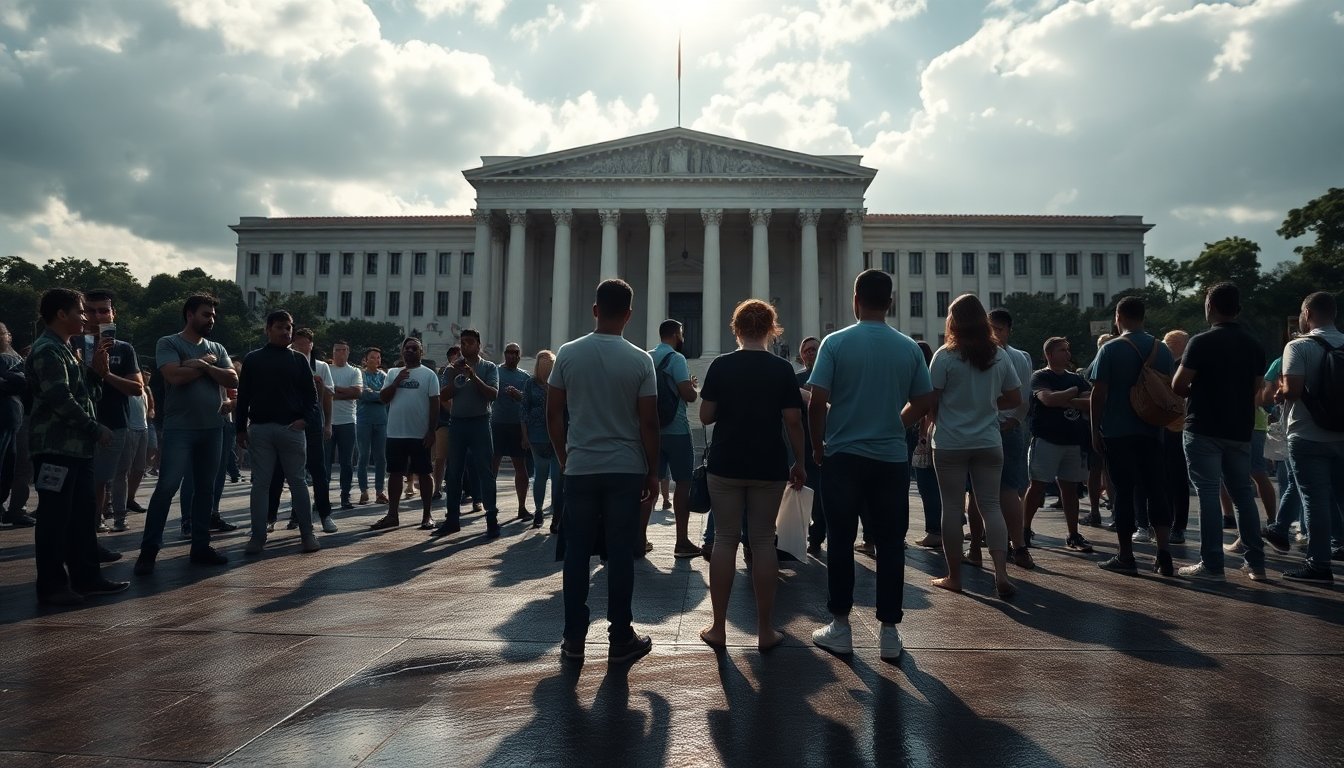Table of Contents
The recent ruling by Brazil’s Supreme Court has stirred significant attention both domestically and internationally. Former president Jair Bolsonaro now faces conviction for orchestrating a coup attempt following his electoral defeat in 2022. This landmark decision marks him as the first ex-president in Brazil to be convicted for such actions, indicating a critical moment for the country’s democratic institutions. With three out of five justices voting for a conviction, the implications extend beyond Bolsonaro, potentially reshaping Brazil’s political landscape and influencing far-right movements globally.
The significance of the ruling
The Supreme Court’s decision is monumental for several reasons. It underscores the judiciary’s essential role in safeguarding democracy, especially in countries where populist leaders have attempted to undermine democratic processes. Bolsonaro, a former army captain with a controversial admiration for Brazil’s military dictatorship, has been at the forefront of a political movement rooted in nationalism and authoritarianism. His conviction serves as a stark reminder that even powerful political figures are not above the law.
This ruling resonates with similar legal challenges faced by far-right leaders around the world. In nations such as France and the Philippines, populist figures have encountered legal repercussions for their actions, raising questions about the accountability of leaders who manipulate the democratic system for personal gain. The parallels between Bolsonaro’s case and those of Marine Le Pen and Rodrigo Duterte highlight a growing trend where judicial systems are becoming critical battlegrounds in the fight for democracy.
Reactions and consequences
The immediate aftermath of the conviction has sparked reactions from Bolsonaro’s supporters and allies. U.S. President Donald Trump, a close ally, has labeled the legal proceedings a “witch hunt,” reflecting a broader narrative often used by populist leaders to rally their bases against perceived injustices. Trump’s commitment to supporting Bolsonaro through sanctions and tariffs complicates the diplomatic landscape, emphasizing how political affiliations can influence international relations.
In Brazil, the ruling has the potential to galvanize Bolsonaro’s supporters while simultaneously energizing opposition groups that have long sought accountability for his administration’s controversial actions. This division within the Brazilian populace illustrates the broader ideological battles shaping the nation’s future. Furthermore, the ruling could embolden judicial actions against other political figures engaging in similar conduct, fostering a culture of accountability.
Looking ahead: Implications for Brazilian democracy
As Brazil moves forward from this landmark ruling, the implications for its democracy are profound. The conviction may deter future leaders from contemplating similar authoritarian actions, reinforcing the resilience of democratic institutions capable of self-correction. However, the divided nature of Brazil’s political landscape suggests that this ruling will not end the discourse surrounding Bolsonaro and his supporters.
In the medium term, attention will likely shift to how this conviction impacts Bolsonaro’s political influence and the broader far-right movement in Brazil. The potential for ongoing legal battles and political maneuvering will keep Brazil in the spotlight as it navigates this challenging period. Observers will be keen to see if this ruling catalyzes a shift toward greater political accountability or further entrenches divisions within the nation.


